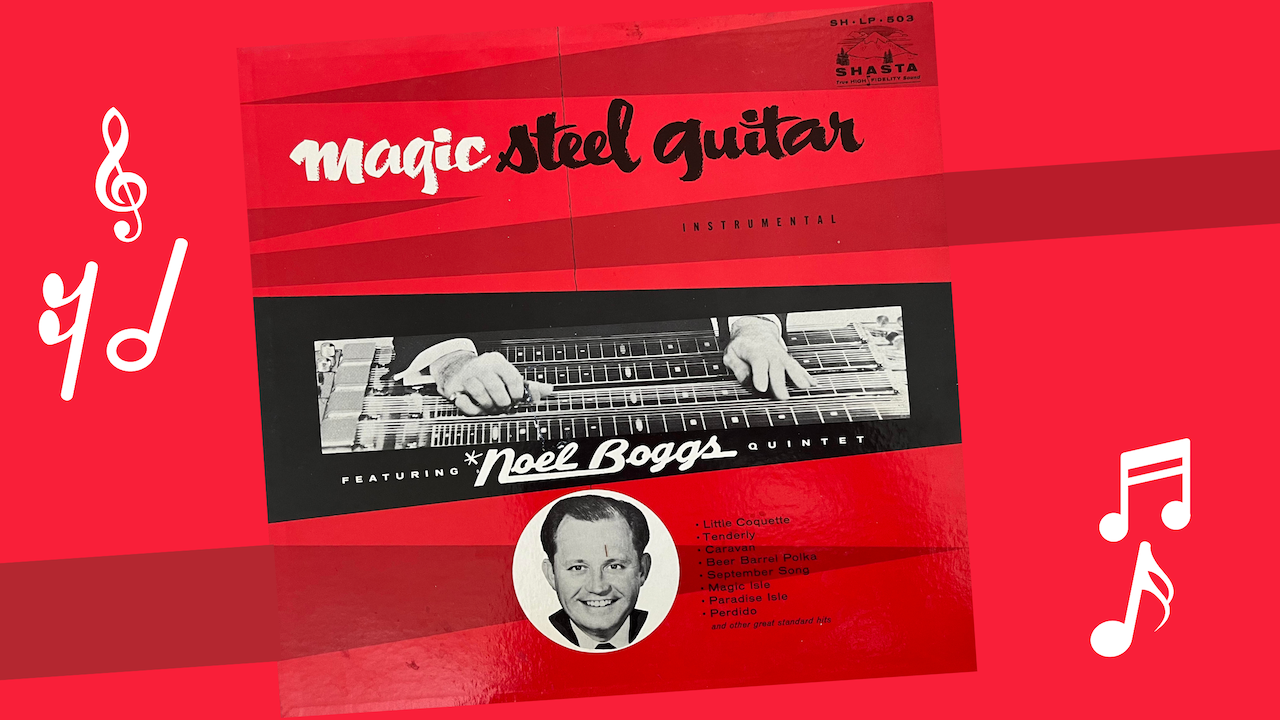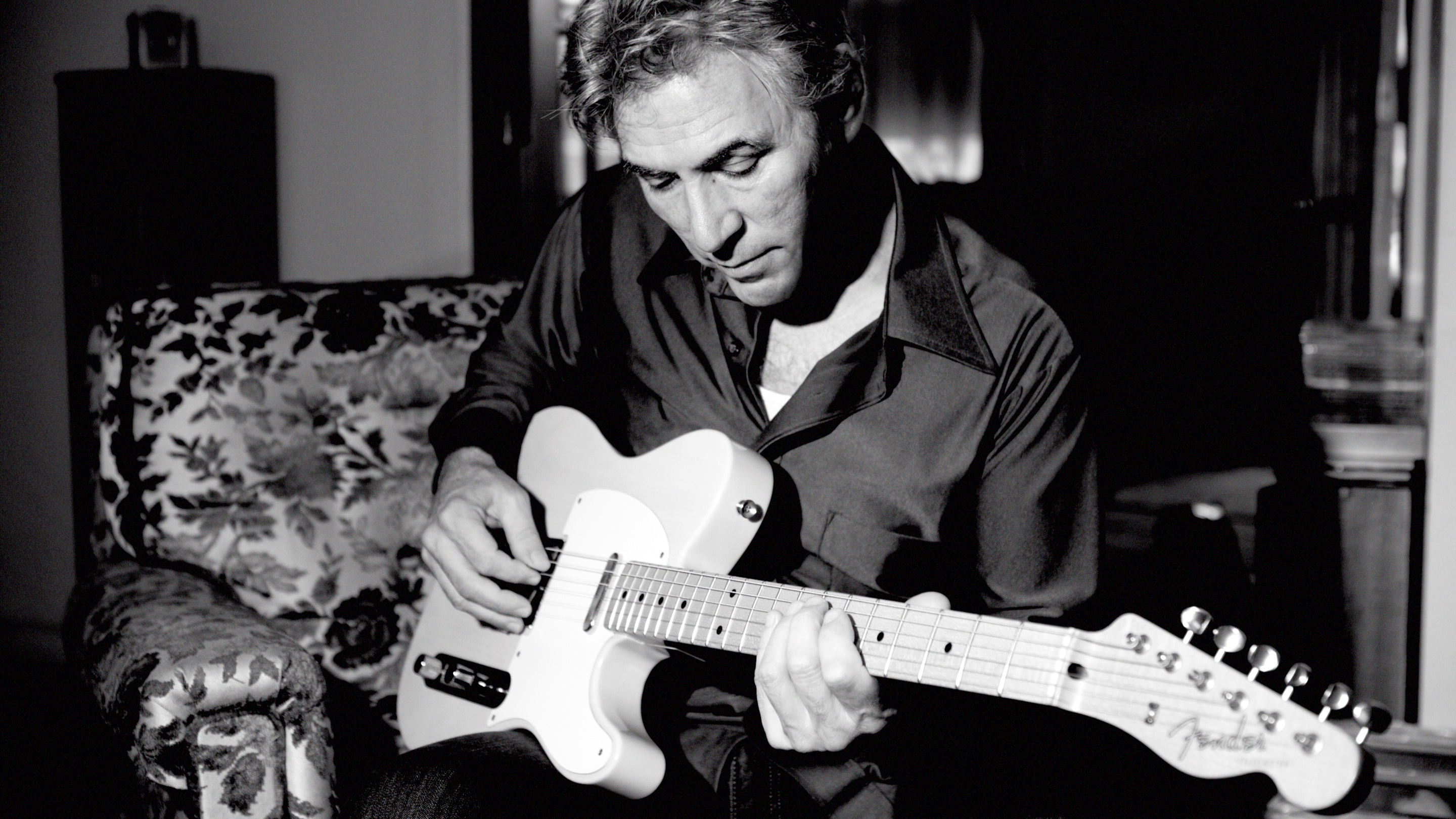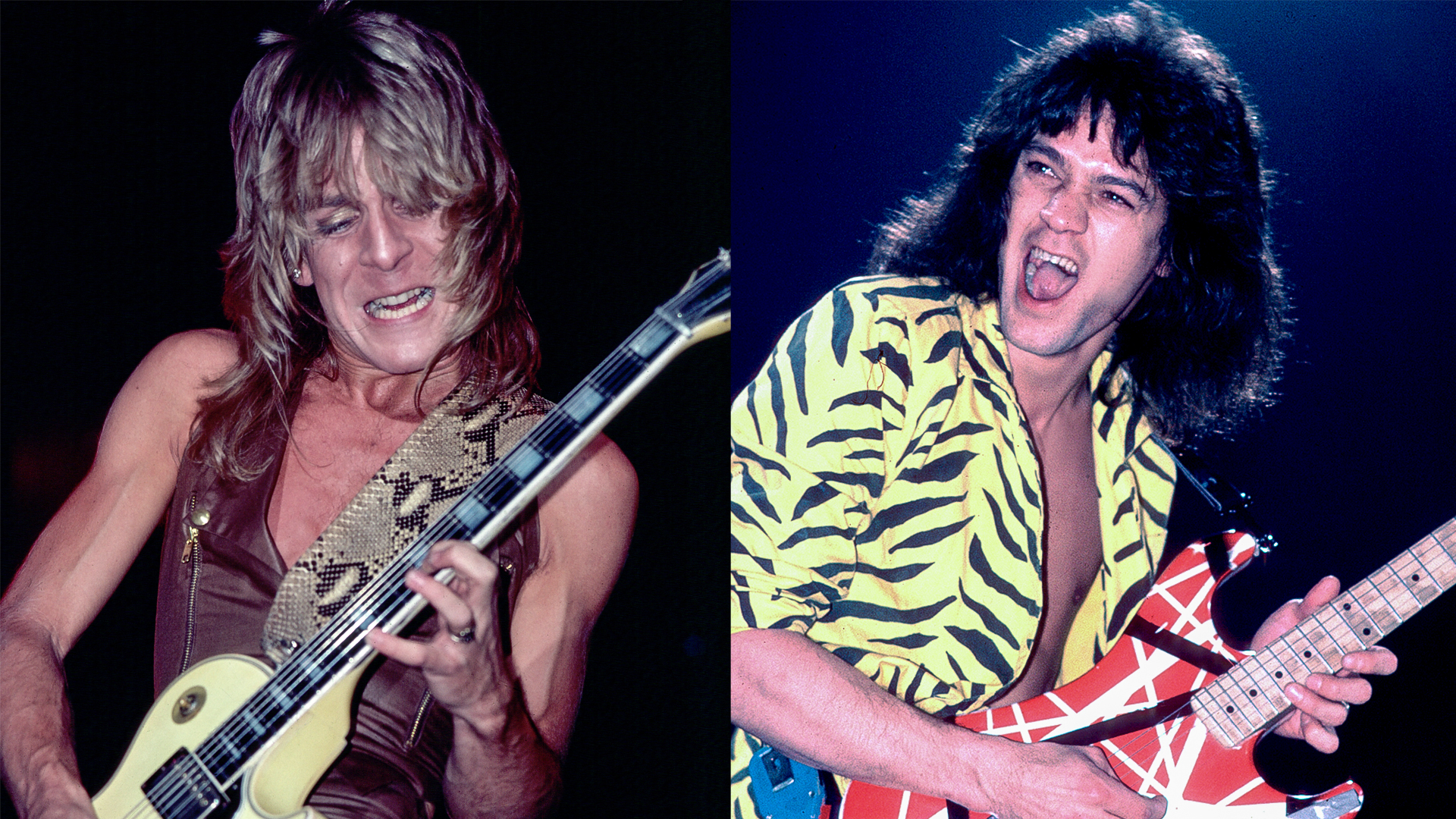He played on over 2000 country records, was friends with Leo Fender and played a small role in the development of the Tele – but here's why you should really listen to the Noel Boggs Quintet's Magic Steel Guitar
It's not a masterpiece. It didn't change the world. But Magic Steel Guitar should be listened to by anyone who loves country, jazz, and steel guitar

All the latest guitar news, interviews, lessons, reviews, deals and more, direct to your inbox!
You are now subscribed
Your newsletter sign-up was successful
Magic Steel Guitar by the Noel Boggs Quintet has no chest-pumping phrases, no jaw-dropping, lightning-fast virtuosity. That’s not to say Boggs doesn’t speak through his instrument, or that his guitarist Neil LeVang isn’t absolutely superb – but it’s a mature ensemble work and a well-played record featuring exquisite craftsmanship. The goal of these musicians was not to knock us over and kick our asses – it was more their intention to give us a kiss on the forehead. And we can all use a kiss on the forehead now and then.
Noel Boggs was born in Oklahoma City in 1917 and started playing lap steel while in junior high. Within the short span of three years he joined and toured with the Radio Cowboys, the Western swing group of banjoist Hank Penny. Noel went on to play with Bob Wills and the infamous Spade Cooley, making a historical and significant musical contribution to both artists. Noel was influenced by jazz guitar pioneer Charlie Christian and would woodshed by transcribing Christian’s solos with fellow musicians Cameron Hill and the great Jimmy Wyble.
His first steel guitar was a Rickenbacker, but while working with Spade Cooley, Noel met Leo Fender. Since Leo valued musicians’ input into his creations, Noel played a role in Fender’s first lap steel, which, as we know, was a prototype for the Telecaster guitar. If you play a Telecaster, Noel Boggs’ long arms reach out to you.
And if you love steel guitar without a cowboy hat and boots, Magic Steel Guitar is a record I’d recommend. Side one opens with the mid-tempo jazz swing number Little Coquette. Noel plays a phrase that is answered by organist Ivan Ditmar’s B3, while the band, consisting of LeVang and an uncredited drummer, swing elegantly. The classic standard Tenderly follows, with great accompaniment by Paul Smith on piano. Noel plays the melody with a gentle loveliness that sounds almost like a human voice.
Steel Guitar Rag follows, and while that’s admittedly a “been there done that” track for me, Boggs and company breathe life into this well-trodden standard with clever arrangements and the unlikely addition of bongos. Noel’s single-note lines sing majestically on Beautiful Ohio, and Stealin’ Home is a Boggs original that sounds suspiciously familiar, yet has enough surprises to satisfy. Magic Isle closes side one neatly with a lovely after-hours jazz vibe.
A perky Caravan opens side two, followed by a swinging Birth of the Blues that has a tasty Neil LeVang guitar break. I need to hear more Neil LeVang. He was a longtime member of the Lawrence Welk Band, and played for everyone from Glen Campbell to Frank Zappa and on TV shows, including The Brady Bunch and The Monkees. I urge you to check out his work.
Up next, September Song has a haunting feel but is never overly dramatic. It’s followed by Perdido, Paradise Isle and the unlikely showstopper Beer Barrel Polka, which is possibly the most stunning track on this LP. LeVang performs clever counterpoint lines and Boggs lets ’er rip, while the drummer plays an almost militaristic clave feel. The result is an amiably fantastic finale.
All the latest guitar news, interviews, lessons, reviews, deals and more, direct to your inbox!
Noel Boggs’ Magic Steel Guitar doesn’t try to change the world, and while it’s not a masterpiece, it finds its way to my turntable more often than the heralded works of high art in my collection. I love its easy-going nature, and I feel the camaraderie of musicians who never grandstand but seem to enjoy one another while playing music they love. What’s not to like? It’s nice. And sometimes all I want is nice.
Jim Campilongo has 14 critically acclaimed instrumental records available on vinyl, CD and digital download here.


